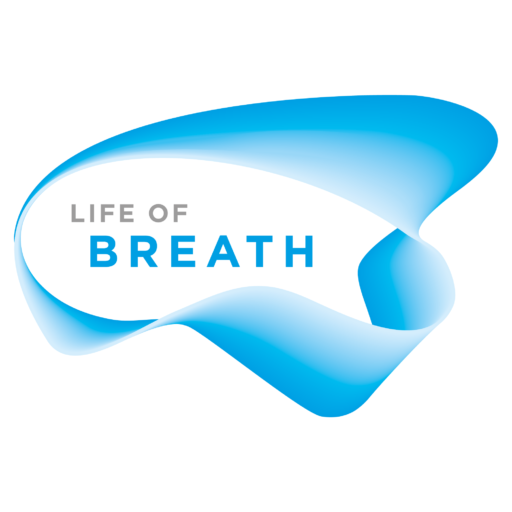Heart Failure
The header image shows a viola, also called heartsease. Music therapist and writer Kate Binnie writes:
I am in the hospital. Cardiology ward.
My mother sits on the edge of the hospital bed, her swollen and shiny legs look as if they’ve been wrapped in clingfilm. In the opposite bay, a very old lady in her nineties we will come to know as Mary watches us, her eyes wide over the humming oxygen mask until the curtain is pulled and mum is asked to disrobe. Mum pants, looking at the floor, grunting quietly as the cardiologist listens to her chest. I watch him do this. Her breasts hang down over her wrinkled stomach. I notice the pinkness of her nipples and feel a rush of sadness and gratitude – they fed me! The cardiologist is absolutely still and quiet with his eyes closed, completely absorbed in his craft, listening to the worn out valves and faulty chambers of my mother’s heart. His cardigan-clad shoulders are slightly stooped, his face and voice reminds me of Rowan Atkinson. He talks to Mum as if she is a little deaf, in a slow and penetrating drone. It’s as if there’s been a common and minor plumbing mishap. He explains what’s gone wrong in technical language, and then, in a more upbeat tone, how he proposes to fix it. This feels at odds with the emergency admission, the paramedics in the middle of the night, my mother’s gasping breaths, which seemed at the time might be her last.
My mother waits until he’s finished with the stethoscope, then asks in a clear and determined voice “how the end will come”. She looks up at him as she asks this question, her breasts still exposed, her cheeks mottled blue, breathing short and hard through her mouth. “That’s a very direct question, Mrs Binnie” the cardiologist says, bouncing on his toes and glancing at the solemn young registrar taking notes in my mother’s blue file. He widens his stance, thinks for a moment, puts his hands behind his back, and, looking down at her on the bed proceeds to explain that some deaths from advanced heart failure are relatively quick (a heart attack or massive stroke would do nicely, during sleep best of all), but the other 50% of deaths are slower and involve a round of diuretics (“getting you to your dry weight”, as if she were a show dog or prize cow), then home, then the water building up again…. “we just don’t know.” He smiles reassuringly, kindly.
Having watched my mother all but die in front of me in the last twenty-four hours (and having watched her slowly, steadily decline over recent weeks and months and seem to give up), I clear my throat in the small curtained cubicle and wonder politely whether it might be an idea to make a connection with the palliative care team? I also suggest morphine to alleviate the breathlessness. “Are you medical?” the cardiologist asks, looking at me properly, swivelling his head slowly like a bright-eyed tortoise preparing to change direction. I explain that I’m a music therapist, but I have read the recent systematic review on morphine for dyspnoea and I did just do an MSc in…. but already I’m not being listened to. The doctor glances again at his young acolyte who frowns. “I think we’ll be able to get you back on your perch again, Mrs Binnie,” the cardiologist says, crinkling his eyes, before leaving. I hear him using the perch metaphor again several times that day behind other old ladies’ curtained cubicles. I think of budgies on the floor of their cages, small pink claws in the air.
It takes me a week to get the morphine, which alleviates the breathlessness immediately, but as a trade-off they also send a psychiatrist to see my mother. He also seems to want to see me, but I am at work when he comes. I am aware of being labelled the “difficult” daughter. We too, at hospice, had also labelled and casually pathologised patients and family members… the mad mother, the angry son, the avoidant Dad, the nightmare sister, the difficult daughter. Daughters are often difficult: they seem to bear the brunt of the situation as it unfolds into crisis, and often have their own young families to care for and jobs to keep. They are stretched, frazzled, and in tune with the emotions of things; they often seem to express grief for the whole family. We can, indeed, be extremely difficult.
Mum tells me later that she explained to the psychiatrist (terribly nice young man, black as coal) that she’s not anxious for any reason other than the fact that she can’t breathe. She describes it as being water-boarded and absolutely terrifying. I’m mortified when I hear that she told him really he should speak to me, her daughter, about this. I winced when imagining her telling him he really ought to try yoga. She told me she asked if he understood about the feedback loop between lungs & brain, and the stress response (experienced affectively as anxiety) triggered by the chemical imbalance in her blood caused by her waterlogged lungs. I think she was a bit of a hit: he left a nice message on my mobile to say that my mother was clearly entirely sane.
During the three weeks that Mum is in the cardiology ward she tries to ask the young registrars more questions about “the end”. These are palliative care issues – she wants to talk openly about her death, which (as she recovers and feels physically better, she is less hungry to meet) she knows is inevitable sometime in the not too distant future. She is eighty-five, after all. Having watched her husband die less than a year ago, I think she is trying to understand what her death may be like. It seems to me like a form of preparation. Will it be like Dad’s? The memory of a long, starved, cancer death is clearly at the forefront of her mind. Eventually the young doctors only come in pairs, practically holding hands, to see her. They never answer this question with the clarity and honesty of their consultant that first visit, but Mum clearly needs to go through it again. She wants to weigh it all up, work things out, make some plans, get ready to meet her maker. She is the sort of person who needs time to think things through, to process experiences and emotion before taking action. I remember how Dad used to react and respond quickly and urgently to emotion, to events as they unfolded, and how Mum always needed more time. It was a dissonance between them. But these young doctors are charged simply with the task of checking that Mum is losing water, and they adjust the diuretics accordingly and try to ensure her kidneys will cope. It’s a constant trade-off between the systems of the body: a chemical dance. They don’t think it’s necessary to make a connection with the palliative care team, as Mum is getting slowly better, but Mum still wants to talk about dying, even though my brothers and the doctors seem to think it’s morbid and unnecessary.
One day as I’m visiting, doing the Guardian crossword with Mum, a young, tall, African registrar arrives at the bedside alone. Her name-badge reveals a surname with lots of consonants. She is beautiful, like an athlete, with wide shoulders and a long stride. I think of Oti Mabuse on Strictly Come Dancing: my whole family was in love with her. Unlike all of the others, she doesn’t stand at the foot of the bed, but squats lightly down by mum’s side to talk to her so that my mother can look into her face. She smiles at mum, such a gorgeous wide smile. Mum is charmed.
“Could I ask you something?” Mum says. “Of course,” the doctor replies in a plummy deep voice, still smiling. I imagine Cheltenham Ladies College. “Ah, yes,” Mum says. “Um, you see, when I arrived here, I was hoping to be euthanized, but clearly… that’s not possible?”
“No,” replies the doctor, still smiling, but her eyes are serious and she takes mum’s hand. “Yes…..And, really… I am feeling so much better now.” Mum says this with as much brightness as she can muster and pats the doctor’s hand.
“Your husband died last year?” the doctor asks, following a subtle unspoken thread. “Yes,” Mum says, “Yes, my husband died. We were married for sixty years.” She looks at me, floundering. I realise that I’m her baby – she may wish to protect me from her grief, which, its true, has been oddly unexpressed in the ten months since Dad died. “It’s OK, Mum,” I say, squeezing between the furniture to get to her and taking her other hand. My mother was born in 1931 and she has always found it hard, immoral, even, to talk about feelings. She tended to eat bread and butter, or just butter, angrily and silently, as the rest of the family expressed themselves around her. Dad was the overt and un-regulated one in the marriage. Her own father had his tonsils out without anaesthetic aged seven in pre-revolutionary Russia and didn’t make a sound. She doesn’t say more to the young doctor, but she holds onto her hand, looking at the floor, and her breathing rasps and becomes shallow. The doctor takes it all in, smooths mum’s hand, moving on to talk of plans for home, praise for doing well, a gentle wash of words. When she leaves I stay close to Mum. I hug her. “You gave up, Mum, didn’t you?” I feel my throat tighten. Dad’s gone: it will be a year soon, the snowdrops are here again. The world keeps on turning with beautiful indifference. Dad had the best of it, really. All this is the fallout: Mum has to rebuild from here.




4 Comments
labyrinthkay
George Wahl
Lisa
Lisa